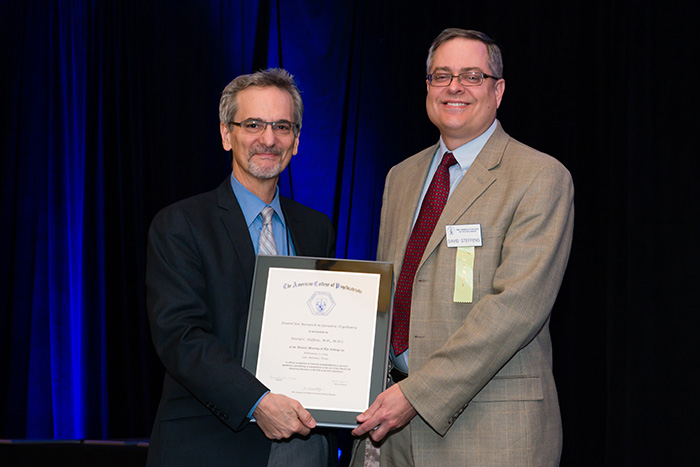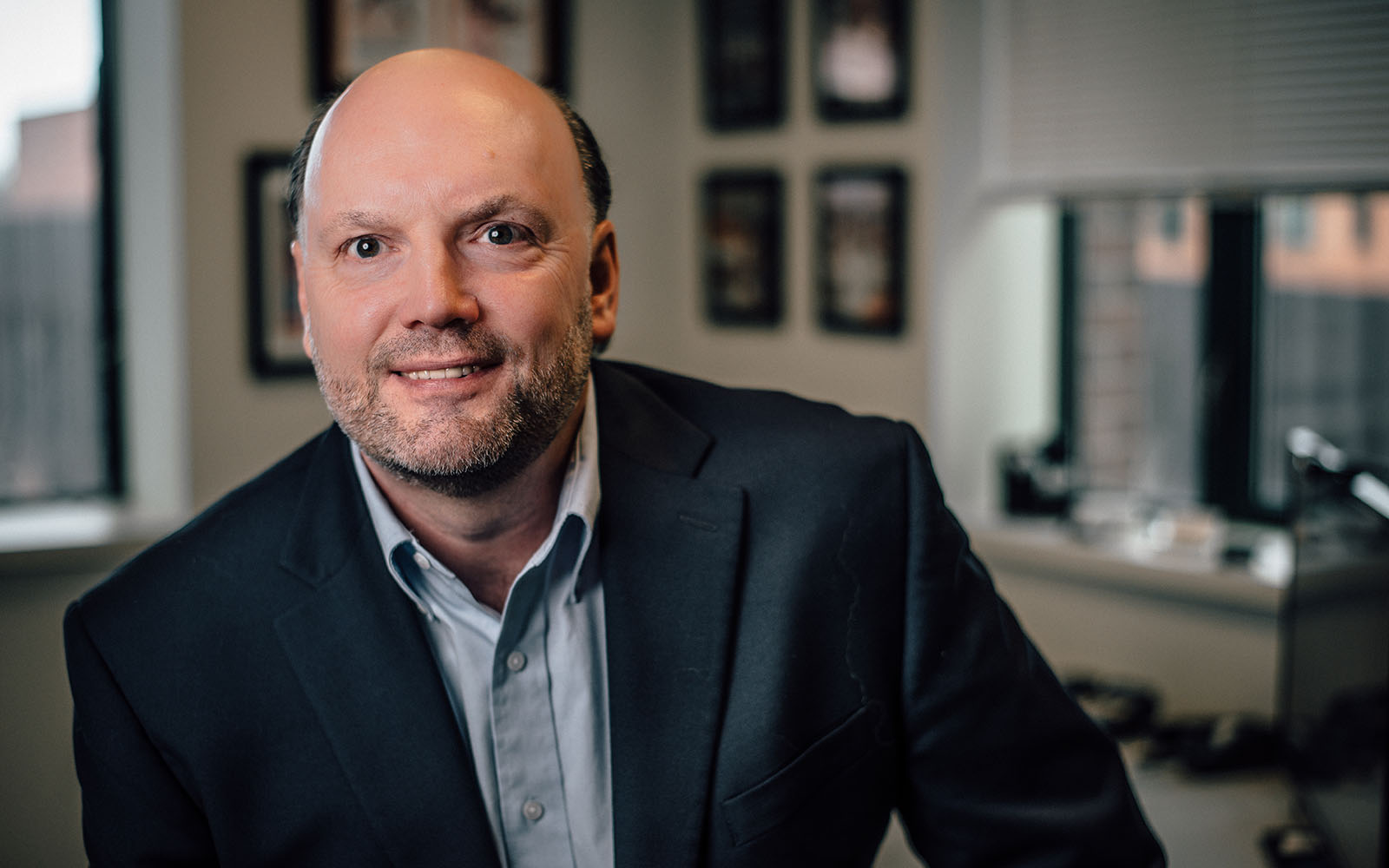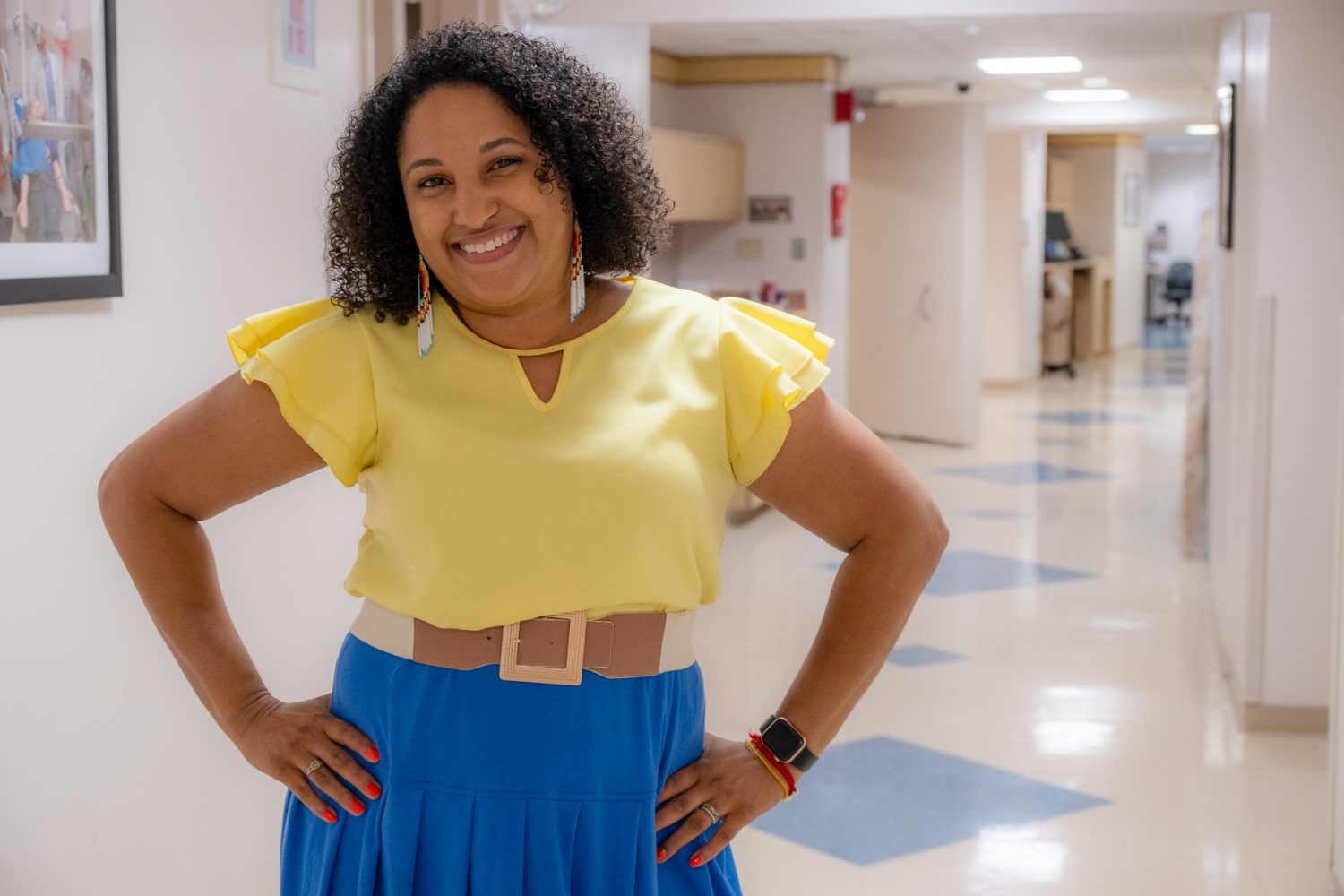
The connection between late-life depression and cognitive decline in older adults is a major focus of Dr. David Steffens, professor and chair of the UConn Health Department of Psychiatry.
Steffens is credited with contributing to the understanding of this relationship and helping advance the field of geropsychiatry by The American College of Psychiatrists, which just presented him with the career recognition Award for Research in Geriatric Psychiatry.
Steffens’ work in this area goes back to his days at Duke University, where his study of patients with late-life depression included brain scans and cognitive testing. He continues that research at UConn.
“I am excited that we have the opportunity to bring innovative research to Connecticut,” says Steffens, who also serves as president of the American Association of Geriatric Psychiatry. “With this study, older adults with or without depression can learn more about themselves while contributing to our understanding about depression in late life, and those with depression receive treatment, with the goal of achieving remission of their symptoms.”
The contact for the study, “Neurobiology and Acute Treatment Outcomes of Late Life Depression,” is Jennifer Brindisi, 860-679-7581 or brindisi@nso1.uchc.edu. Steffens seeks research volunteers as he builds a geriatric psychiatry program at the UConn Health Center.
“Research is one component of our plan to grow our geriatric psychiatry program,” Steffens says. “We are establishing a clinical fellowship that will offer advanced training in the care of older adults with mental health or cognitive issues. Both the research and training missions rest on expanding our services for the elderly. We’re growing a comprehensive memory disorder clinic that will offer both one-time evaluations and ongoing care, which will really fill a niche in the area. We’re expanding on our inpatient geriatric psychiatry unit, and strengthening our relationships with senior living communities in the region.”
That expansion includes the recruitment of Dr. Kristina Zdanys, a geriatric psychiatrist who trained at Yale University and New York University. Zdanys specializes in later-life mental health problems, including cognitive and mood disorders in the context of aging-related psychosocial changes. She sees patients in both the UConn Health psychiatry outpatient clinic at 10 Talcott Notch Road, and in the geriatric medicine clinic in the Dowling South building.
Follow UConn Health on Facebook, Twitter and YouTube.



